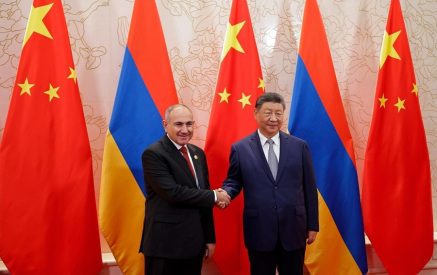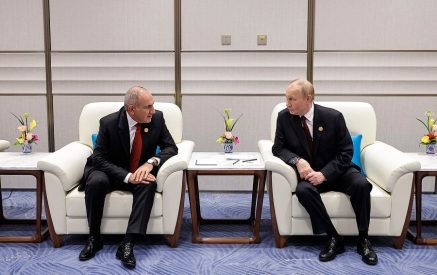In February of 2015, only one month after the official launch of the Eurasian Economic Union (EAEU), Ambassador Extraordinary and Plenipotentiary of the Russian Federation to China, Andrey Denisov, announced about the intention of the two parties to create a free trade area.
Both China and Russia support deeper integration in the Eurasian region but each of the countries has its own ideas about integration. In case of Russia, the integration processes take place in the EAEU context while China has been following the “Silk Road” doctrine introduced by President Xi Jinping since 2013. In both cases, the aim is deepening the economic interdependence for the sake of economic and geopolitical interests of these countries. In this context, the aims of the two projects coincide at least from one perspective, and signing of a free trade agreement becomes an optimal scenario. Hence, it is interesting what economic consequences the signing of such an agreement may have for the Eurasian Economic Union and particularly for Armenia.
The EAEU and China
The EAEU and China are geographical neighbors and are interconnected, and, hence, stable and close trade relations have been historically formed between the parties. The graph below shows the share of exports to China in the total exports of each EAEU member country.
Read also
As can be seen from the graph, among EAEU member countries, only Armenia has registered continuous growth in exports to China during the recent years. In this situation, it may seem that the free trade agreement will become the tool Armenia will use for increasing exports and solving a number of economic problems. But numbers can also be deceptive because the share of exports to China has increased not because of absolute export growth but because of sharp decline in exports to other countries. The point is that as a result of Russia’s economic decline and devaluation of the Ruble, exports from Armenia to Russia have sharply fallen, and in these conditions, China’s share has increased. Meanwhile, in absolute terms, export in 2015 declined and reached 315 million USD compared to 2014 (414 million USD).
In parallel, the commodities exported from Armenia to China are becoming increasingly uniform. In 2015, 99.36% of exports were formed by minerals, scoria and ash. This sector is one of those in extractive industry which generate little added value. Hence, it is not realistic to expect that considerable profit can be made and additional budget revenues can be ensured in case of increase in exports of this commodity group. Moreover, increase in production of such commodities can be very alarming from the viewpoint of damage caused to the environment.
At the same time, products like food and agricultural raw materials (28.56%), minerals (27.1%), and precious stones and metals (20.4%) remain dominant in the RA commodity export structure. China is one of the most important suppliers of the international market in all these sectors. And if we take into account the circumstance of the underdevelopment of Armenia-China transport infrastructure, we can rightly claim that EAEU-China free trade agreement is not likely to help national producers of the field to enter the Chinese market.
In the meantime, the share of imports from China has been increasing in all the EAEU countries in the recent years. The cheap products from China manage to easily push out the national production from the domestic market. In Armenia, the volume of imports from China is also quite stable and diversified in contrast to the export commodity system. Consequently, it is probable that the free trade agreement will result in Chinese products pushing out national producers from the Armenian market.
Is It Integration Progress or Economic Regression?
In these circumstances, a question arises… Is it in the interests of Armenia or EAEU to have a free trade agreement that envisages zero customs duties? It would be wrong to expect that the free trade agreement would allow us to increase exports from Armenia and would create new jobs. On the contrary, it is more likely that the cheap Chinese products, which are super competitive in the international market today, will be able to easily withdraw national producers from the market and will further increase the unemployment rate.
In this context, it is worth mentioning the example of the European Union. The EU is China’s largest trade partner, and China is EU’s second largest partner. In spite of the circumstance that the EU has a relatively stable economy and considerable competitive advantages in foreign trade, the European Commission keeps on delaying the signing of a free trade agreement with China. In this way, the EU protects the general market from the influx of cheap Chinese products and from all the ensuing negative economic consequences.
At least at the current point of economic development, it would be wise to follow the example of the EU. Both Armenia and other EAEU member countries should first and foremost focus their attention on increasing the competitiveness of their own national economies and assisting the national producers. Only the countries which have highly competitive and stable national economies can benefit from the deepening of integration processes.
Andranik Manukyan,
“Union of Informed Citizens”






























































